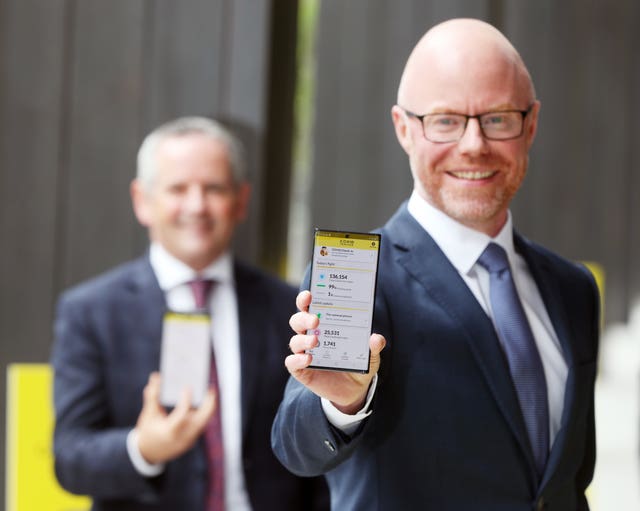A glance at coronavirus contact tracing apps across the world
England and Wales prepares to launch its own app on Thursday in a bid to stem the virus’s spread.

England and Wales are set to be the latest nations to embrace an app in the hope of better tracing the coronavirus.
The NHS Covid-19 app will be available from Thursday and follows a number of countries who have already turned to technology.
But feedback has been mixed with limited information about each nation’s success, in part due to the focus on privacy.
Here, the PA news agency looks at contact tracing apps across the world:
– Singapore
Singapore became the first country to launch a Covid-19 app back in March called TraceTogether and has achieved 2.4 million downloads.
One of the issues faced by the voluntary app is that it needs to be running in the foreground on iOS to work.
Apple and Google came together to devise a shared framework that would make it easier for health authorities to create tracing apps after Singapore’s effort was launched, but the country has decided to stick with its own approach despite the limitations on iOS.
In September Singapore also began distributing Bluetooth tokens, which can be worn on a lanyard or carried, as an alternative for older people without a smartphone.
– Australia
Australia’s voluntary app is based on the same system developed by Singapore, therefore suffering some of the same iOS limitations.
COVIDSafe was launched in late April and notched up more than a million downloads within the first 24 hours – however, the Government has refused to reveal how many active users it has had.
Officials in Australia have also defended not opting for the Apple-Google approach, with only a limited number of cases where the app successfully managed to identify previously unidentified close contacts reported.
Defending their decision not to change course, Australia’s deputy chief medical officer Nick Coatsworth said: “The Apple-Google offering, apart from being released only once the global case numbers exceeded nine million, substantively diminishes the role of the disease detective in the process.
“By their own admission, these tech giants will not allow public health officials access to the details of contacts.”
– India
The Aarogya Setu app uses both Bluetooth and GPS location to track users, the latter of which has been avoided by most other countries and has raised questions about privacy.
India’s app is required to be used more widely than in other countries too, with all workers, both private and public, expected to have it installed.
– China
In China, the app gives users a colour based on a traffic light system – green for clear, red for a coronavirus contact – and it is reportedly needed to move about as widespread restrictions are lifted.
– France
France’s StopCovid app has been running for three months now but a recent report suggests that it has had little success.
According to the Covid-19 control and liaison committee, less than 200 notifications have been sent since the app launched.
– Ireland

– Iceland
In May, it was reported that uptake in Iceland stood at 38%.
Gestur Palmason, a detective inspector from the Icelandic Police Service charged with overseeing contact tracing efforts in the country, told MIT Technology Review that the technology had been “proven useful in a few cases” but said “it wasn’t a game changer”.
– Other countries and regions
Many other places have also already launched their contact tracing apps, including Germany and several US states.
Months beyond the initial May launch originally touted for the England and Wales offering, officials and Government will be hoping that taking time to test before rolling out was the right move.





